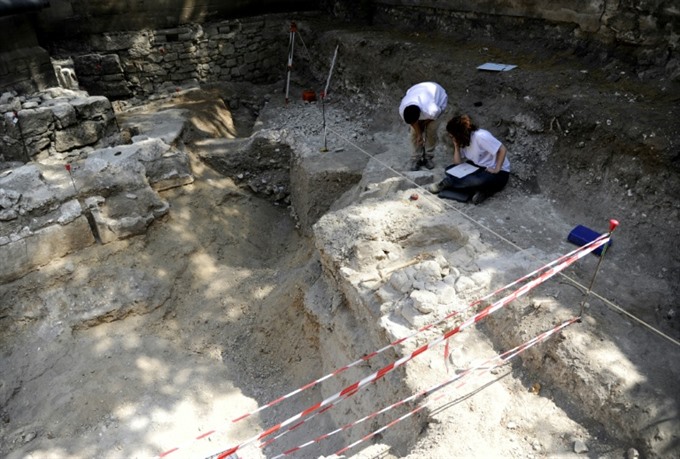 Life & Style
Life & Style

French and Spanish volunteer archeologists have discovered a child's milk tooth dating back 560,000 years in the mountains of southern France — an "exceptional fossil", researchers said Tuesday.
 |
| French and Spanish archaeologists have discovered a milk tooth belonging to a human sub-species while on a dig, similar to the one pictured here in July 2015. — AFP Photo |
TOULOUSE, France — French and Spanish volunteer archeologists have discovered a child’s milk tooth dating back 560,000 years in the mountains of southern France — an "exceptional fossil", researchers said Tuesday.
The fossil was discovered on Monday evening in the Arago Cave, a vast prehistoric grotto at Tautavel on the French side of the Pyrenees mountains bordering Spain.
The site’s laboratory confirmed the tooth belonged to a human sub-species, likely homo heidelbergensis, which shares features with both modern humans and our homo erectus ancestors.
"The tooth likely belonged to a child aged five or six, who still had their milk teeth but had used them a fair amount," said Tony Chevalier, a paleoanthropologist at the University of Perpignan and the research centre in Tautavel.
The tooth is estimated to date back 560,000 years — give or take 5,000 years — which would make it 100,000 years older than the famous Tautavel Man whose skull was found at the same site in 1971.
Researchers said the find was "exceptional" as human remains dating back to this period are extremely rare, although a few teeth from the era have been found previously at the Arago Cave.
Chevalier said the milk tooth — the first found at the site — would "teach us lots of things about man’s behaviour" at the time.
Researchers have long grappled with the question of how people lived in the cave at Tautavel, where some 150 ancient human fossils have been found.
They have yet to determine whether it was a temporary shelter where our ancestors stopped off for a hunting break, or whether families made it a more permanent home — a mystery the milk tooth could help solve. — AFP









